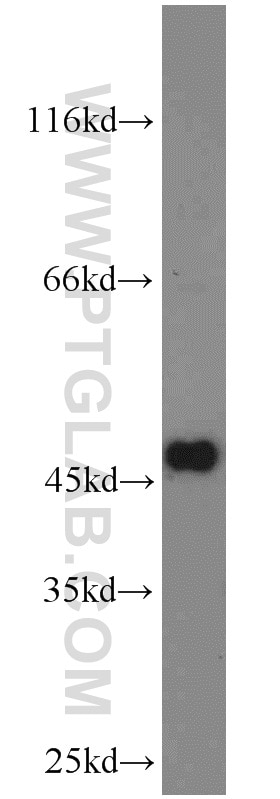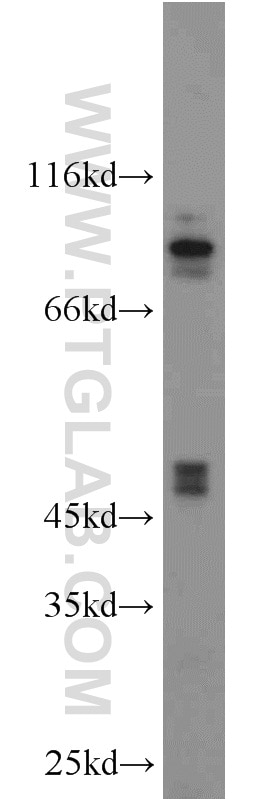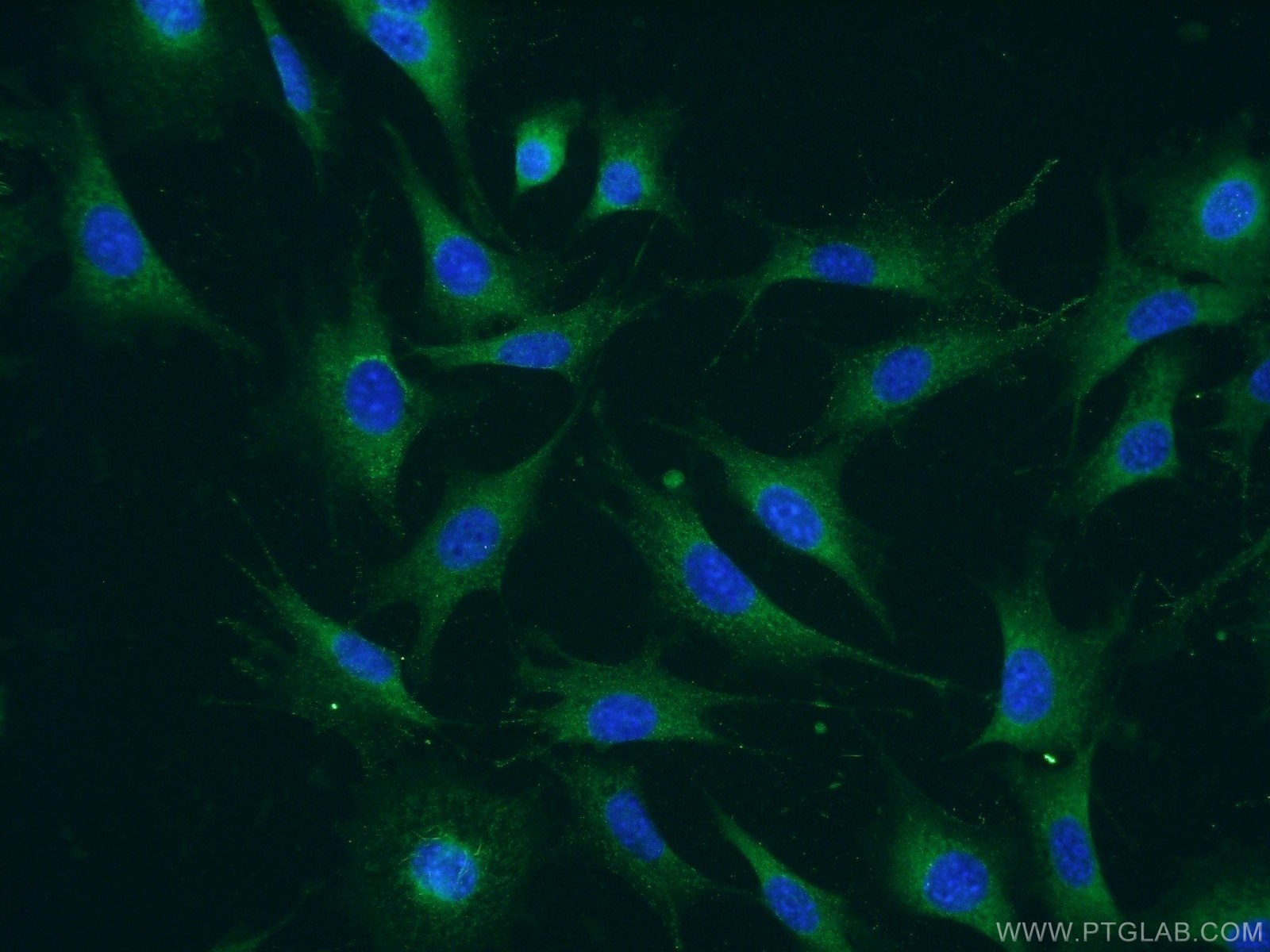ATPBD4 Polyklonaler Antikörper
ATPBD4 Polyklonal Antikörper für WB, IF/ICC, ELISA
Wirt / Isotyp
Kaninchen / IgG
Getestete Reaktivität
human, Maus
Anwendung
WB, IF/ICC, ELISA
Konjugation
Unkonjugiert
Kat-Nr. : 23993-1-AP
Synonyme
Geprüfte Anwendungen
| Erfolgreiche Detektion in WB | NIH/3T3-Zellen, L02-Zellen |
| Erfolgreiche Detektion in IF/ICC | NIH/3T3-Zellen |
Empfohlene Verdünnung
| Anwendung | Verdünnung |
|---|---|
| Western Blot (WB) | WB : 1:500-1:2000 |
| Immunfluoreszenz (IF)/ICC | IF/ICC : 1:20-1:200 |
| It is recommended that this reagent should be titrated in each testing system to obtain optimal results. | |
| Sample-dependent, check data in validation data gallery | |
Veröffentlichte Anwendungen
| WB | See 1 publications below |
Produktinformation
23993-1-AP bindet in WB, IF/ICC, ELISA ATPBD4 und zeigt Reaktivität mit human, Maus
| Getestete Reaktivität | human, Maus |
| In Publikationen genannte Reaktivität | human |
| Wirt / Isotyp | Kaninchen / IgG |
| Klonalität | Polyklonal |
| Typ | Antikörper |
| Immunogen | ATPBD4 fusion protein Ag21178 |
| Vollständiger Name | ATP binding domain 4 |
| Berechnetes Molekulargewicht | 267 aa, 30 kDa |
| Beobachtetes Molekulargewicht | 48 kDa |
| GenBank-Zugangsnummer | BC008485 |
| Gene symbol | ATPBD4 |
| Gene ID (NCBI) | 89978 |
| Konjugation | Unkonjugiert |
| Form | Liquid |
| Reinigungsmethode | Antigen-Affinitätsreinigung |
| Lagerungspuffer | PBS with 0.02% sodium azide and 50% glycerol |
| Lagerungsbedingungen | Bei -20°C lagern. Nach dem Versand ein Jahr lang stabil Aliquotieren ist bei -20oC Lagerung nicht notwendig. 20ul Größen enthalten 0,1% BSA. |
Hintergrundinformationen
Diphthamide is a highly modified histidine in the transcription factor EEF2 that is conserved from yeast to human. ATPBD4, also known as DPH6, belongs to the Diphthine--ammonia ligase family. DPH6 amidase may catalyze the last step of diphthamide biosynthesis using ammonium and ATP to play a role in catalyzing the final step of diphthamide biosynthesis, amidation of diphthine to diphthamide (PubMed:23169644).
Protokolle
| PRODUKTSPEZIFISCHE PROTOKOLLE | |
|---|---|
| WB protocol for ATPBD4 antibody 23993-1-AP | Protokoll herunterladen |
| IF protocol for ATPBD4 antibody 23993-1-AP | Protokoll herunterladen |
| STANDARD-PROTOKOLLE | |
|---|---|
| Klicken Sie hier, um unsere Standardprotokolle anzuzeigen |




